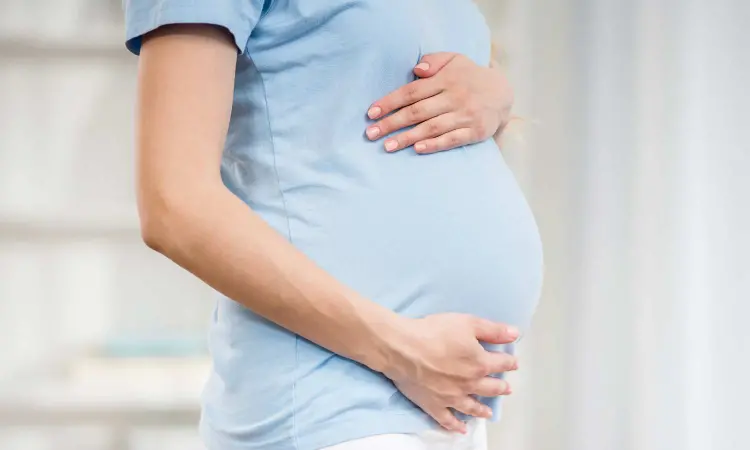- Home
- Medical news & Guidelines
- Anesthesiology
- Cardiology and CTVS
- Critical Care
- Dentistry
- Dermatology
- Diabetes and Endocrinology
- ENT
- Gastroenterology
- Medicine
- Nephrology
- Neurology
- Obstretics-Gynaecology
- Oncology
- Ophthalmology
- Orthopaedics
- Pediatrics-Neonatology
- Psychiatry
- Pulmonology
- Radiology
- Surgery
- Urology
- Laboratory Medicine
- Diet
- Nursing
- Paramedical
- Physiotherapy
- Health news
- Fact Check
- Bone Health Fact Check
- Brain Health Fact Check
- Cancer Related Fact Check
- Child Care Fact Check
- Dental and oral health fact check
- Diabetes and metabolic health fact check
- Diet and Nutrition Fact Check
- Eye and ENT Care Fact Check
- Fitness fact check
- Gut health fact check
- Heart health fact check
- Kidney health fact check
- Medical education fact check
- Men's health fact check
- Respiratory fact check
- Skin and hair care fact check
- Vaccine and Immunization fact check
- Women's health fact check
- AYUSH
- State News
- Andaman and Nicobar Islands
- Andhra Pradesh
- Arunachal Pradesh
- Assam
- Bihar
- Chandigarh
- Chattisgarh
- Dadra and Nagar Haveli
- Daman and Diu
- Delhi
- Goa
- Gujarat
- Haryana
- Himachal Pradesh
- Jammu & Kashmir
- Jharkhand
- Karnataka
- Kerala
- Ladakh
- Lakshadweep
- Madhya Pradesh
- Maharashtra
- Manipur
- Meghalaya
- Mizoram
- Nagaland
- Odisha
- Puducherry
- Punjab
- Rajasthan
- Sikkim
- Tamil Nadu
- Telangana
- Tripura
- Uttar Pradesh
- Uttrakhand
- West Bengal
- Medical Education
- Industry
Prognosis of pregnancies after previous complete uterine rupture favorable- Study

The rate of uterine rupture is increasing worldwide in relation to increased use of caesarean section (CS). As a result, an increasing number of women who have experienced a complete uterine rupture are asking for advice regarding a new pregnancy. Complete uterine rupture, which is often catastrophic, involves all uterine wall layers, including the serosa and membranes. Much more common is the uneventful partial rupture (dehiscence), which spares the serosa or membranes.
Current guidelines from the American College of Obstetricians and Gynecologists (ACOG) recommend that elective repeat CS should be scheduled between 36 and 38/6/7 weeks of gestation for pregnant women with a history of uterine rupture, with eventual changes based on individual evaluation (ACOG 2017). The aim of the present study by Iqbal Al-Zirqi and Siri Vangen was to determine the rate of repeat complete rupture in new pregnancies and the outcomes of such pregnancies. Describing the outcome of these pregnancies may contribute to the individual evaluation of each woman regarding advice on a new pregnancy, followup, and timing of delivery.
They measured the rate of new complete ruptures and partial ruptures, as well as the maternal and perinatal outcomes of these pregnancies. The characteristics of both previous ruptures and new ruptures were described.
Among 72 maternities, there were thirty-seven with previous ruptures in the lower segment (LS) and 35 outside the LS. Authors found three new complete ruptures and six uneventful partial ruptures, resulting in a rate of 4.2% and 8.3%, respectively. All three complete ruptures occurred preterm in scars outside the LS. The rate of the new complete rupture was 0% in those with previous ruptures in the LS and 8.6% in those with previous ruptures outside the LS. The corrected perinatal mortality was 1.3%, and prematurity (<37 weeks) was high (36.1%); this was noticed even in the absence of new ruptures and was mostly iatrogenic. Two hysterectomies were performed in the absence of rupture and two cases had abnormal invasive placenta.><37 weeks) was high (36.1%); this was noticed even in the absence of new ruptures and was mostly iatrogenic. Two hysterectomies were performed in the absence of rupture and two cases had abnormal invasive placenta.
There were three new complete ruptures among 72 mothers with a previous complete uterine rupture (a rate of 4.2%; 8.6% if the previous rupture is outside the LS and 0% if the previous rupture is in the LS). Mothers with repeat complete ruptures presented preterm with acute abdominal pain. There were six partial ruptures that were uneventful except for two premature births at 28 weeks. Te corrected perinatal mortality was 1.3% and prematurity (<37 weeks) was very high (36.1%); this was noted even in the absence of new ruptures and was mostly iatrogenic. Tose with an interdelivery interval of 2–3 years had zero repeat complete ruptures.><37 weeks) was very high (36.1%); this was noted even in the absence of new ruptures and was mostly iatrogenic. Those with an interdelivery interval of 2–3 years had zero repeat complete ruptures.
The prognosis for pregnancies after a previous complete uterine rupture is favorable. Prematurity is mostly iatrogenic, caused by both obstetrician and mother’s anxiety; therefore, the timing of delivery is the most challenging aspect. Careful counseling of the mothers, vigilance for symptoms, and quick access to a tertiary unit are the most important points in management.
Source: Iqbal Al-Zirqi and Siri Vangen ; Hindawi Obstetrics and Gynecology International Volume 2023, Article ID 9056489
MBBS, MD Obstetrics and Gynecology
Dr Nirali Kapoor has completed her MBBS from GMC Jamnagar and MD Obstetrics and Gynecology from AIIMS Rishikesh. She underwent training in trauma/emergency medicine non academic residency in AIIMS Delhi for an year after her MBBS. Post her MD, she has joined in a Multispeciality hospital in Amritsar. She is actively involved in cases concerning fetal medicine, infertility and minimal invasive procedures as well as research activities involved around the fields of interest.
Dr Kamal Kant Kohli-MBBS, DTCD- a chest specialist with more than 30 years of practice and a flair for writing clinical articles, Dr Kamal Kant Kohli joined Medical Dialogues as a Chief Editor of Medical News. Besides writing articles, as an editor, he proofreads and verifies all the medical content published on Medical Dialogues including those coming from journals, studies,medical conferences,guidelines etc. Email: drkohli@medicaldialogues.in. Contact no. 011-43720751


